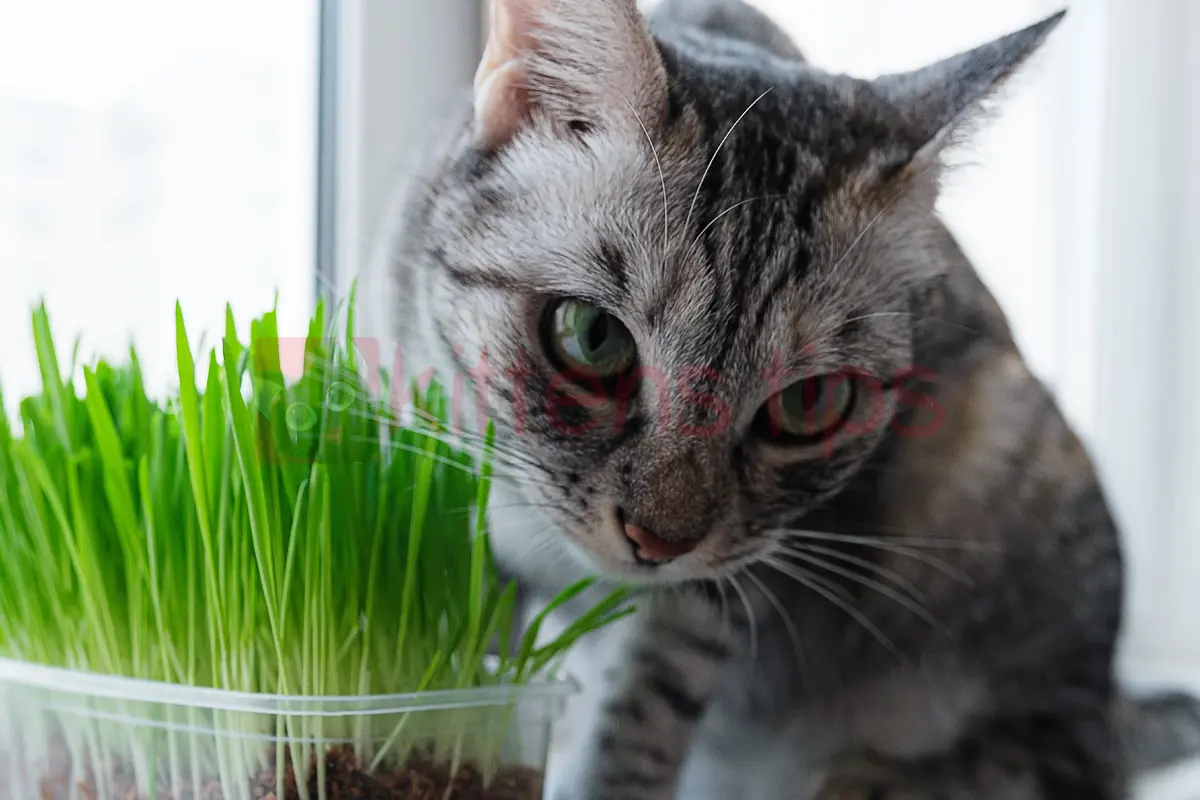Dans un article précédent, we explored the intriguing realm of plants and their effects on our feline companions, specifically addressing the captivating question of « catnip effects on cats. » However, among the numerous plants we discussed, there is one that stands out for its unique appeal to cats. Catnip, also referred to as « Nepeta Cataria » or « Catmint, » is a beloved herb among felines.
Known colloquially as « Cat’s Herb, » Catnip originates from Europe and Asia, and its effect on cats is akin to that of a drug. Cats will sniff it, which induces a sense of well-being and relaxation. They may start to meow, roll around it, dart around the house in a frenzy, and even chew on it, although the plant’s impact is primarily olfactory (scent).
Closely related to mint, « Catnip » has a slight lemony-mint scent, and the essential oil nepetalactone is the element that cats adore. It is believed that this substance mimics the happiness hormones of cats and stimulates nerve centers in the brain that respond to these hormones. Researchers compare « Catnip » to the effects of marijuana in humans but without the risk of addiction or overdose.
La plupart des félins adultes sont affectés par l'herbe à chat, à l'exception des chatons de moins de huit semaines. Même les félins plus grands comme les lions, les tigres et les léopards ne sont pas à l’abri de ses effets. L'effet dure généralement entre 5 et 10 minutes et peut être répété environ deux heures plus tard.
Après consommation, les chats ne présentent aucun effet négatif. Aucun cas de surdose, de dépendance, de vomissements ou de gueule de bois n’a été signalé.
Cependant, tous les chats ne sont pas sensibles à cette plante. Si votre chat ne montre aucune réaction, il fait partie des 20 à 30 % de félins immunisés contre les signaux olfactifs de la menthe.
The cat toy and accessory industry has capitalized on the effects of this substance, leading to the creation of toys for cats with « Catnip. » Owners can also use this to their advantage. You can sprinkle dried catnip on sisal or on a specially designated area for cats to sharpen their claws. This increases the likelihood that your cat will forget about the sofa, the corner of the bed, or other pieces of furniture they may otherwise use for scratching.
L'herbe à chat peut être cultivée en pot et ses feuilles peuvent être facilement conservées au congélateur, les gardant fraîches toute l'année. Évitez cependant d’exposer la plante ou ses feuilles à la lumière directe du soleil, car la népétalactone est sensible aux rayons UV.
Il a été démontré que la substance active de cette plante est plus efficace que d’autres produits pour repousser les moustiques et les parasites des cuisines.
L'herbe à chat peut également être utilisée par les humains. Il peut avoir un effet sédatif ou provoquer un état euphorique. La plante a été utilisée pour traiter les maux de tête, l’insomnie, les maux d’estomac, la toux ou en appliquant ses feuilles sur les coupures et les plaies. Comme pour les chats, il est déconseillé aux femmes enceintes.
In conclusion, the enchanting world of catnip effects on cats reveals a captivating aspect of our feline friends’ behavior. This remarkable herb, catnip (Nepeta Cataria), originating from Europe and Asia, has a profound impact on cats, inducing everything from fascination to relaxation. Its unique qualities, often likened to a drug, make it a must-know subject for any cat owner. Understanding how catnip effects cats can provide valuable insights into enhancing the well-being and playfulness of our beloved pets, and it remains an intriguing topic for both scientific research and the joy it brings to our feline companions.
